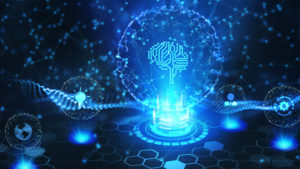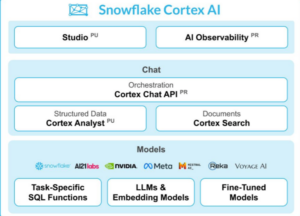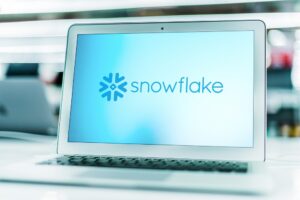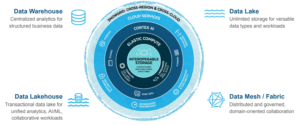
Snowflake Dips Into Agentic AI with Snowflake Intelligence

(Den Rise/Shutterstock)
Snowflake made a blizzard of announcements today at its Build 2024 user conference, including a new generative AI-powered capability in Snowflake Cortex AI, dubbed Snowflake Intelligence, that allows customers to build agentic AI apps based on conversations and other interactions they have with their data. Other announcements include the general availability of a slew of previously announced offerings, like its notebook, internal marketplace, and open catalog offerings, among others.
The highlight of the Build 2024 product launch may be Snowflake Intelligence, which is a new addition within the Snowflake Cortex AI product line. Cortex AI, of course, is the AI service Snowflake launched one year ago that lets users run a range of large language model (LLM)-powered tasks in the cloud, including: a conversational interface dubbed Document AI that lets users ask questions of unstructured data using natural language; a retrieval augmented generation (RAG)-based search engine dubbed Cortex Search; and Cortex Analyst, a text-to-SQL generator.
With Snowflake Intelligence, customers can take the AI interactions they have had using these Cortex AI functions and use them to build AI agents that can automatically accomplish tasks based on the previous interactions users had with them. Building these AI agents is done in a no-code manner, Snowflake says, and it works with both structured and unstructured data.
“With Snowflake Intelligence, teams can easily create data agents that allow business users to talk to their enterprise data using natural language, and then analyze, summarize, and take action on those results from one unified platform,” Baris Gultekin, Snowflake’s head of AI, says in a press release.
Snowflake Intelligence, which isn’t yet in private preview, can tap into data stored in Snowflake as well as third-party sources, such as databases, documents in knowledge bases like SharePoint, and productivity tools like Slack, Salesforce, and Google Workspace, the company says. Snowflake also announced the general availability of the previously announced Cortex AI offerings, including Cortex Search and Document AI. Cortex Analyst is currently in public preview.
Cortex AI represents Snowflakes biggest bet yet on GenAI. But the company is also moving the ball forward with data management, including with enhancements to Horizon Catalog, its enterprise data discovery and governance solution. To that end, the company announced the GA of Snowflake Open Catalog, the managed service based on Apache Polaris (incubating), which is the Apache Iceberg-based metadata catalog that Snowflake developed and then donated to the Apache Software Foundation.
“Our goal is to enable organizations and other industry leaders to be able to host Apache Polaris if they want,” said Snowflake EVP of Product Christian Kleinerman. “But also we are providing a Snowflake managed, Snowflake hosted version of Apache Polaris, and that is what we’re introducing now as the Snowflake Open catalog.”
Other new capabilities in Horizon Catalog include new security and privacy capabilities, including leaked password protection. This function, which will be GA soon, will automatically disable users’ passwords discovered on the dark web. Snowflake is also bolstering security with Programmatic Access Tokens (PATs), which will use tokens to authenticate users via API. This will be private preview soon, Snowflake says.
Snowflake, which was hit with a security breach earlier this year that impacted customers, is taking steps to fortify its users’ environments. To that end, it announced the GA of Threat Intelligence Scanner Package, which will automatically detect which human users or APIs pose high risks, and help to risky with clear mitigations on how to reduce said risks.
“One of the areas where we’re helping our customers to deliver a secure configuration of their Snowflake accounts in the Trust Center is the UI, where we make a number of checks and recommendations and assessments on how well they’ve configured and surface them to our customers,” Kleinerman said in a press briefing last week.
Kleinerman also mentioned the recent GA of differential privacy, which bolsters the security of customer data by inject noise into specific data sets in such a way that it dilutes the value to a hacker who’s after personally identifiable information (PII) but maintains its analytic value. “We’re very excited that differential privacy policies are now generally available to our customers,” he said.
Today’s announcements also bring some goodies for data scientists, including the general availability of Snowflake Notebooks, which will give data scientists a place to explore data and Python-based machine learning algorithms. An out-of-the-box notebook experience (vis a vis Jupyter or the Databricks notebook), was one of the most requested items Snowflake has had over the years, according Kleinerman.
Data scientists also will be happy to hear that Snowflake ML support for Container Runtime is now in public preview running on AWS, and will be soon in public preview soon on Azure. This will give customers a fully managed container environment that’s accessible through Snowflake Notebooks to run distributed workloads on both CPUs and GPUs.
Snowflake also announced the launch of a public preview for Observability for ML Models, which uses tech developed by TruEra (which it acquired in May) to monitor performance and various metrics for any model running inference in Snowflake. While Snowflake already gave customers more than 20 different metrics to help them understand how their models are running, it wasn’t easy for users to figure out what it all meant, Kleinerman said.
“We have heard now, loud and clear, from organizations that the number of models that are becoming available, the number of versions of those models is becoming overwhelming, and the need for a framework and tools to help understand those models is very welcome,” he said.
Snowflake also announced the general availability of its Internal Marketplace this week. The offering, which it first unveiled at its Data Cloud Summit in June, is geared toward enabling internal users to discover data, applications, and AI products created by other teams within their own organization.
As a part of this launch, Snowflake is also allowing folks to share fine-tuned LLMs using the Internal Marketplace. This capability, which still in public preview, eliminates the need to make copies and transer models outside of the bounds of the Snowflake AI Data Cloud.
“A key capability is the ability to share machine learning models,” Kleinerman said during the press briefing last week. “And it can be, again, either trained directly through our ML APIs or through the Cortex fine-tuned API, where you can take, say, a Llama-3 model provided with the data, get the resulting model, and then make it available through the marketplace in a listing of this.”
Snowpark Container Services, which lets users run their own homegrown Java, Python, and Scala programs, has been in general availability since June on AWS (in preview on Microsoft Azure). Snowflake is building on that launch with an offering that has the slightly unwieldy name of Snowflake Native App Framework Integration with Snowpark Container Services.
The significance of this launch is that it allows users to easily build apps in their preferred programming language and then deploy them on top of configurable GPU and CPU instances, Snowflake says. It is currently GA on AWS and in preview on Azure.
Snowflake also made an improvement to UniStore, a hybrid storage and querying framework launched in 2022 that lets customers combine analytical and transactional data. Today, it announced the general availability of Hybrid Tables on AWS, which will give customers a high-concurrency table structure to support transactional workloads.
Related Items:
Snowflake Gives Cloud Customers What They Need and Want at Summit 2024
It’s a Snowday! Here’s the New Stuff Snowflake Is Giving Customers
Snowflake Unveils Native Apps, UniStore, and More Python Support at Summit






























